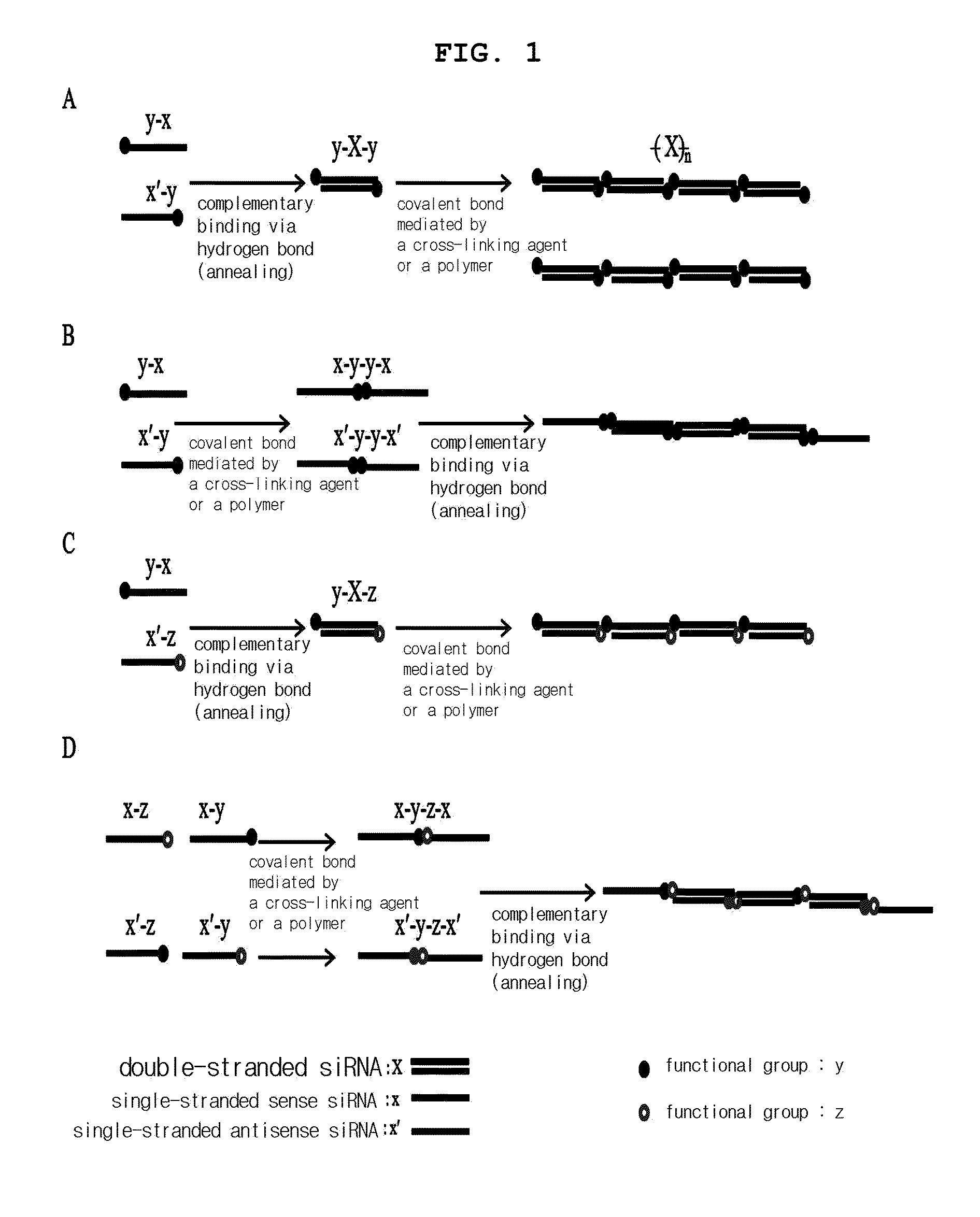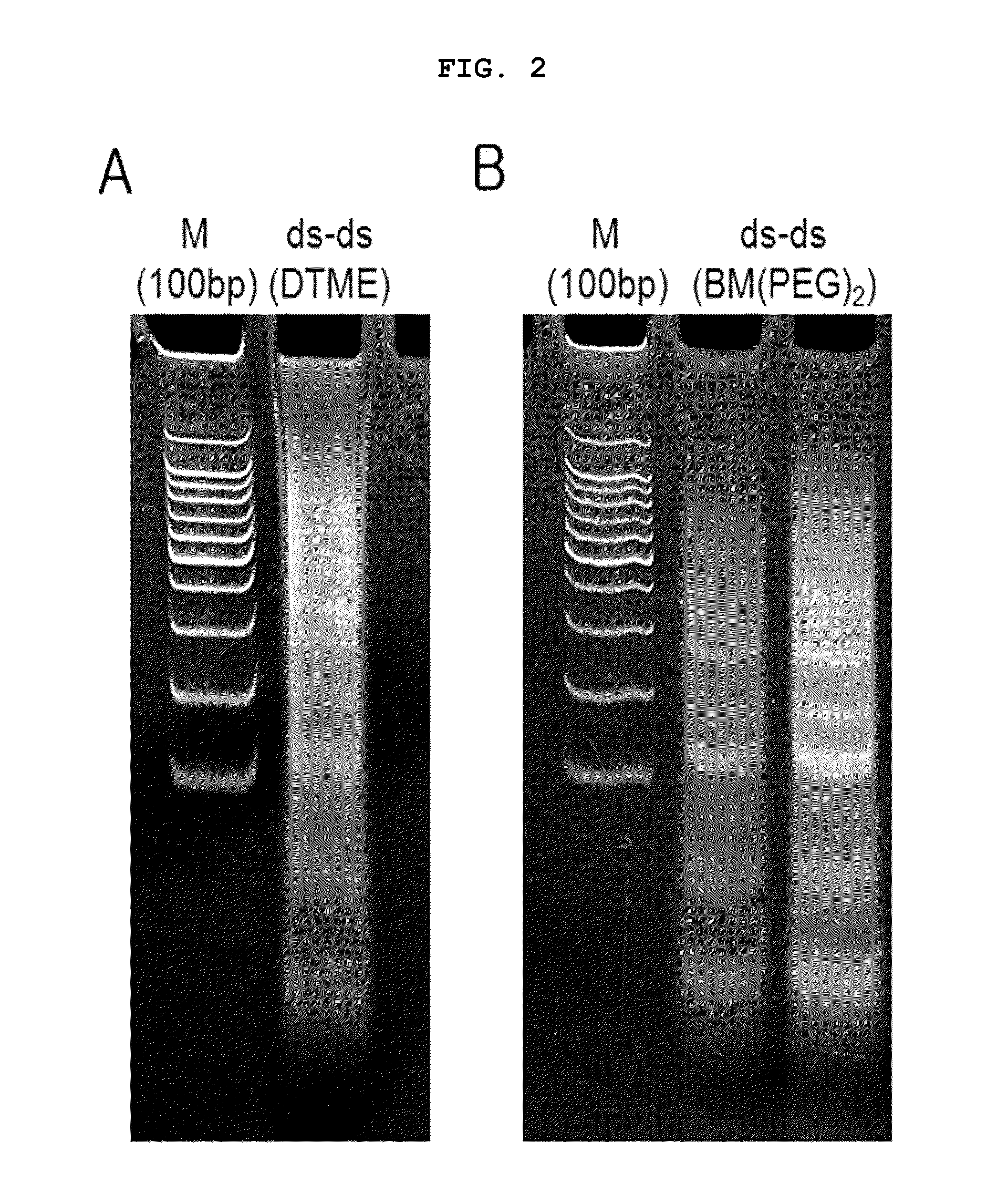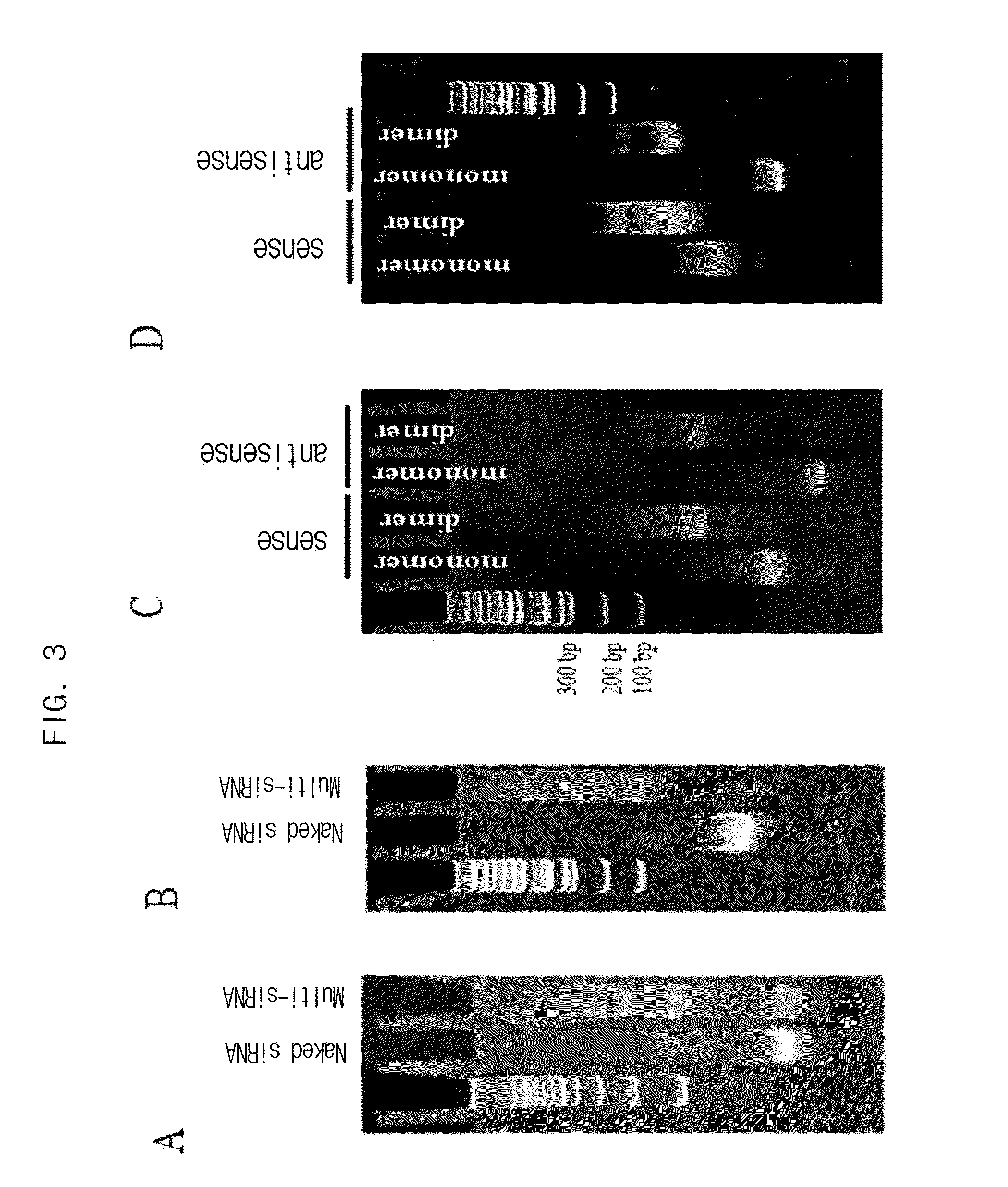Multi-conjugate of siRNA and preparing method thereof
a technology of sirna and conjugate, which is applied in the field of multi-conjugate of sirna, can solve the problems of difficult preparation of stable sirna/cationic gene carrier complex, low intracellular delivery efficiency, and difficult clinical application, and achieves simple reaction process, high efficiency, and high negative charge density
- Summary
- Abstract
- Description
- Claims
- Application Information
AI Technical Summary
Benefits of technology
Problems solved by technology
Method used
Image
Examples
example 1
Preparation of Double-Stranded siRNA via Hydrogen Bond of Sense Strand siRNA and Antisense Strand siRNA having Substitution with same Functional Group at their Ends and Preparation of Multi-Conjugate of siRNA Using Cross-Linking Agent
[0118]100 nmol of sense or antisense strand siRNA having substitution with sulfhydryl group at 3′ end was dissolved in 260 μl of 1×PBS, which stood at 37° C. for 1 hour, resulting in double-stranded siRNA. To reduce sulfhydryl group at both ends of the prepared double-stranded siRNA, 22 μl of 25×PBS, 260 μl of 2M DTT (dithiothreitol) solution and 4 μl of 5N NaOH solution (to adjust pH) were added thereto, followed by reaction for 12 hours. Upon completion of the reaction, remaining DTT was eliminated by dialysis and the solution was concentrated to 1 nmol / μl. 25×PBS was added to adjust the final concentration to 5×PBS. The cross-linking agent DTME or BM(PEG)2 was added at the concentration of half the concentration of thiol group, followed by reaction a...
example 2
Preparation of Dimer of each Sense Strand siRNA and Antisense Strand siRNA having the Substitution with same Functional Group at the End Using Cross-Linking Agent and Preparation of siRNA Multi-Conjugate via Hydrogen Bond
[0120]100 nmol of sense or antisense strand siRNA having the substitution with sulfhydryl group at 3′ end was dissolved in 260 μl of DEPC (Diethyl pyrocarbonate) treated deionized water, to which 22 μl of 25×PBS was added. 260 μl of 2M DTT (dithiothreitol) was added thereto and then 4 μl of 5N NaOH was added to adjust pH, followed by reaction for 12 hours. Upon completion of the reaction, remaining DTT was eliminated by dialysis and the solution was concentrated. As a result, sense or antisense strand siRNA having the final concentration of 1 nmol / μl was prepared. 25×PBS was added to adjust the final concentration to 5×PBS. The cross-linking agent DIME or BM(PEG)2 was added thereto at the concentration of half the concentration of thiol group, followed by reaction a...
example 3
Preparation of Double-Stranded siRNA by Hydrogen Bonding of Sense Strand siRNA and Antisense Strand siRNA having Different Functional Groups at their Ends and Preparation of siRNA Conjugate Using Cross-Linking Agent
[0121]Sense strand and antisense strand siRNA having respectively amine group and sulfhydryl group at 3′end were prepared. 100 nmol of each sense and antisense siRNA was dissolved in 260 μl of PBS, which stood at 37° C. for 1 hour, resulting in the preparation of double-stranded siRNA. DTT was treated thereto in order to prepare single-stranded siRNA having sulfhydryl group substituted at the end, followed by dialysis and concentration to make the final concentration of 1 nmol / μl. The cross-linking agent sulfo-SMCC (sulfosuccinimidyl-4-[N-maleimidomethyl]-cyclohexane-1-carboxylate) was added to the prepared double stranded siRNA, followed by reaction for 24 hours to prepare a multi-conjugate of siRNA. Upon completion of the reaction, remaining foreign materials such as cr...
PUM
| Property | Measurement | Unit |
|---|---|---|
| size | aaaaa | aaaaa |
| concentration | aaaaa | aaaaa |
| covalent | aaaaa | aaaaa |
Abstract
Description
Claims
Application Information
 Login to View More
Login to View More - R&D
- Intellectual Property
- Life Sciences
- Materials
- Tech Scout
- Unparalleled Data Quality
- Higher Quality Content
- 60% Fewer Hallucinations
Browse by: Latest US Patents, China's latest patents, Technical Efficacy Thesaurus, Application Domain, Technology Topic, Popular Technical Reports.
© 2025 PatSnap. All rights reserved.Legal|Privacy policy|Modern Slavery Act Transparency Statement|Sitemap|About US| Contact US: help@patsnap.com



